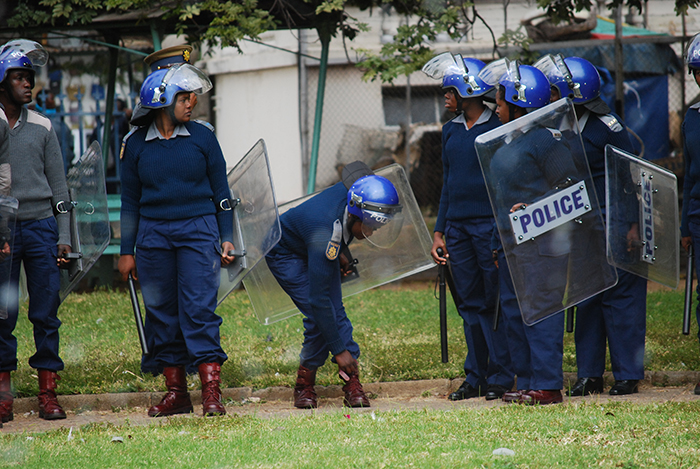
Zimbabwe Communist League, which plans to transform into a political party, claims Zanu PF is behind the banning of its meeting in Bulawayo, saying the ruling party is scared of its emergence.
BY Nqobile Bhebhe
The group had planned to celebrate the 1917 Great October Russian Revolution on October 31 at Stanley Hall, where about 500 people were expected.
However, the Zimbabwe Republic Police refused to clear the meeting, arguing the group was not registered.
A letter signed by a Superintendent D Mapiye, acting Officer Commanding Bulawayo West District, said the Communist League meeting was prohibited in terms of Section (26)1C of the Public Order and Security Act.
“You are also warned that if you proceed contrary to this notice you will be charged in terms of the above act,” he warned. “However, if you are not satisfied with this decision, you are free to approach the magistrates’ court.”
General secretary of the league, Nqabutho Mabhena, yesterday told Southern Eye that they were not yet a political party, but a group of communists, who wanted to celebrate the Great October Russian Revolution.
“It is intimidating in that we are the only ones who are clear ideologically and Zanu PF now realises that we seek to occupy the political space they occupy in the third world,” he said.
- Chamisa under fire over US$120K donation
- Mavhunga puts DeMbare into Chibuku quarterfinals
- Pension funds bet on Cabora Bassa oilfields
- Councils defy govt fire tender directive
Keep Reading
“We are working towards the formation of a Zimbabwe Communist Party, we are a communist group that brings together Zimbabweans who are Marxist-Leninist. The Zimbabwe Communist Party might be established in December 2016.”
Mabhena said they had settled for Stanley Hall as it was a historic place.
“The venue, Stanley Hall, is historic because it is located in Makokoba, the oldest black working-class suburb in Bulawayo and the venue for many militant and revolutionary activities by nationalists and trade unionists during the Rhodesian colonial era,” he said.
“This action reflects the degeneration and paranoia of the Zanu PF government and its State machinery. Zanu PF still vaunts its historical claims to have been formed by two organisations, Zanu and Zapu, both of which at the time of the Unity Accord (1987-1989) explicitly referred to themselves as Marxist-Leninist parties.”










